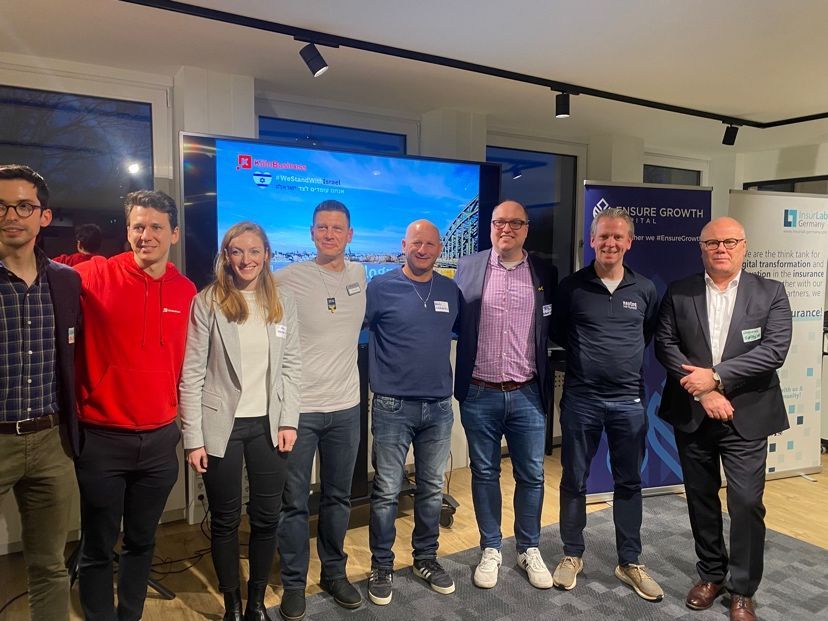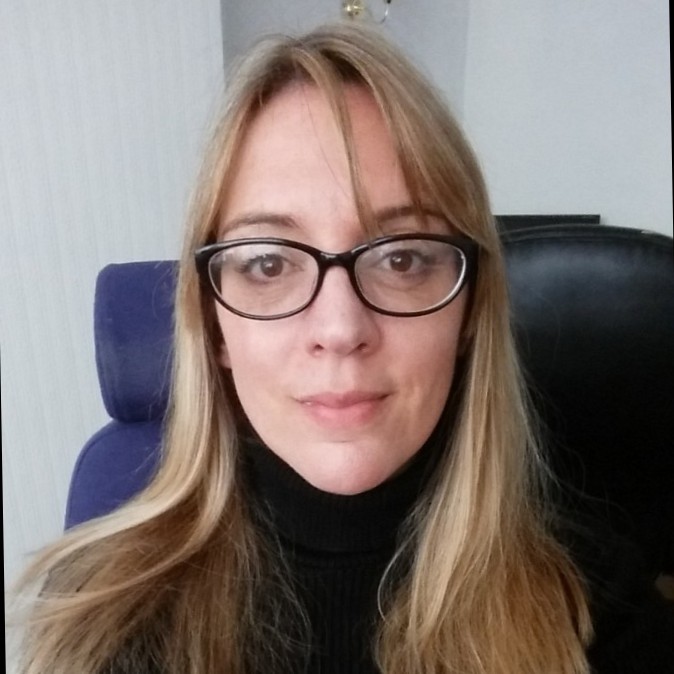A familiar figure on the global insurance scene, Kobi Bendelak is a busy man. Based in Tel Aviv, he travels frequently, and is an enthusiastic advocate for inventive entrepreneurs seeking to transform the staid and steady insurance industry into a vibrant and dynamic space with a thriving insurtech ecosystem
His itinerary is exhausting, and yet, he’ll be the first person to tell you that he thrives on the excitement, fuelled with boundless energy. It’s little wonder then, that Bendelak, who spent 29 years in the military serving his country, also began a career in the insurance industry that ran in parallel to his soldierly duties. He was so successful that he launched an MGA, sold it to Generali Group, and then had the opportunity to retire – all before he hit 50. Insurtech Insights finds out more.
You’ve had a more unorthodox journey than most people, into the insurance industry. Can you tell us about how you juggled two careers?
I began my professional life as a soldier, but after 10 years, even though I loved the army, I wanted to explore civilian opportunities while still maintaining ties to the military.
Scouring through newspaper advertisements back in the day, I saw a lot of activity in insurance brokerage, and it looked interesting. So, I took a leap of faith and got myself licensed as an insurance agent.
I founded a brokerage company in Israel that partnered with the majority of insurance companies in the region. I specialised in high-risk areas such as D&O (Directors and Officers) insurance, errors and omissions, and clinical trials. This turned out to be a good move because it attracted clients consisting mainly of global corporations spanning various sectors including high-tech, biotech, and agriculture.
In a short space of time, my company became one of the leading Managing General Agents (MGAs) in Israel. And I made the strategic decision to sell 50% of my company to the Generali Group after just five years in business. This marked a significant milestone in my entrepreneurial journey, allowing for further development and collaboration within the insurance industry.
A few years later, our MGA had experienced significant growth. And in 2015, I received a phone call from my chairman asking if I wanted to sell all my shares in the company. I agreed, and the company was acquired. And after 22 years I had the opportunity to retire – so I did!

That didn’t last long, because now you are busier than ever. How did InsurTech Israel come about?
I got bored! At 45, I retired — a dream scenario for many people. I had envisioned myself lounging on a Caribbean beach with coconuts in hand after years of hard work. And for a while, let me tell you, it was fantastic. Travelling the world with my family, enjoying attractions, and all the rest. But after about five months, I got restless. While leisure is enjoyable, at 45, you start to yearn for something more substantial in life.
I decided to open myself up to new adventures, even though I didn’t quite know what would happen. I told myself to keep an open heart, believing that good things would follow. And they did. A few weeks later, I received an email inviting me to an Insurtech meetup — and it wasn’t a concept I was familiar with, but curiosity got the best of me, so I decided to attend.
What I encountered was the very early stage of the insurtech industry. I found people who were boldly proclaiming their intent to disrupt the insurance sector in the years ahead. They had a lot of energy and passion – and some brilliant ideas.
It struck a chord with me — I wanted to be part of it. So, I decided to found InsurTech Israel, and I embraced being at the forefront of innovation in the insurance industry.

What is InsurTech Israel exactly – and what are its core aims and purposes?
InsurTech Israel serves as a pivotal entity within the thriving Israeli insurance technology ecosystem. Our primary focus revolves around supporting startups, of which we currently have 185 within our ecosystem. We pride ourselves on being at the forefront of the global InsureTech landscape, boasting one of the largest concentrations of InsureTech startups in a single city worldwide. Our core objectives are structured around four key pillars:
Investment: We actively invest in startups to bolster their financial resources and support their growth within the ecosystem.
Consulting: Recognising that many entrepreneurs in our ecosystem come from diverse backgrounds outside the insurance industry, we provide invaluable guidance to help them refine their products and tailor them to fit within the insurance landscape. This includes navigating industry nuances such as regulations and cultural aspects.
Media and Exposure: We orchestrate a variety of events and roadshows across the globe to facilitate meaningful interactions between startups, potential clients, and investors. By fostering personal engagement, we aim to cultivate trust, a cornerstone of the insurance industry.
Networking and engagement: Through initiatives like roundtables, webinars, and delegations, we foster ongoing dialogue and collaboration between startups and stakeholders within the insurance sector. These platforms serve as invaluable opportunities for knowledge exchange and business development.
Accelerator programme: The programme was launched three years ago and today, we’re celebrating the graduation event for our sixth cohort in Tel Aviv. The accelerator programme stands out as a unique initiative, resembling an executive MBA tailored specifically for startups in the insurance technology space. We’ve assembled a stellar lineup of mentors from around the globe, representing the pinnacle of expertise in various facets of the insurance industry and business development.
What sets our accelerator programme apart is its comprehensive approach. It encompasses roundtable discussions, lectures, workshops with insurance companies, and global roadshows designed to foster growth and collaboration among participants. The results speak for themselves: over the past 18 months, startups in our accelerator programme have collectively raised more than US$100 million and secured over 40 agreements, underscoring its success and effectiveness.
In a nutshell, InsurTech Israel functions as a hub, driving innovation and collaboration within the insurance technology landscape both locally and on a global scale.
How tough was it to launch a platform that championed such new ideas?
One of the biggest obstacles I met early on was building trust with people. Transitioning from being just an insurance agent to the role I now have was a complete 180-degree shift in my professional life. I had to establish credibility and a relationship with startups. At first, I found myself struggling with their language, their culture, and their needs. It was important for me to bridge that gap and create a sense of trust and reliance between myself and the startup community.
Later on, I faced the task of earning trust within the wider insurance industry. As a resident of Tel Aviv, Israel, and without a big corporate background, it was natural there to be scepticism regarding my legitimacy and capability to engage with insurance professionals globally. The onus was on me to prove my worth and demonstrate the value I could offer to both startups and established players in the insurance sector.
However, my background served as a solid foundation during these times. Using my experience within the insurance industry, and my tenure as an agent, I was able to establish myself as a credible and knowledgeable resource.
I was also able to guide startups, unfamiliar with industry issues such as loss ratios. This mutual trust helped build relationships where startups recognised the value I brought to the table, while the insurance industry acknowledged the potential benefits of engaging with innovative technologies emerging from Israel.
So, while the journey was tough initially, drawing upon my past experiences enabled me to build trust and make meaningful connections within both the startup ecosystem and the broader insurance landscape.

From your position overseeing hundreds of startups – which traits and strategies result in a successful business?
When it comes to startup leaders, it’s all about the people, not just the tech they bring to the table. You can have the most groundbreaking solution out there, but if you can’t connect with people, investors, and insurance companies, it’s all for naught.
First off, you’ve got to be a leader. Running a startup is like climbing a mountain, and if you’re not leading the charge, it’s going be a rough ride, especially in the long haul.
Next up, you’ve got to be a strong ambassador for your brand. And I’m not just talking about selling your product; you’ve got to sell your vision, your dream to the people you meet. You’re trying to disrupt the norm, and that takes some serious persuasion skills and authenticity.
Lastly, you’ve got to surround yourself with top talent. Building a team of skilled individuals not only boosts your startup’s chances of success but also creates an environment ripe for innovation and growth.
Now, zooming out to the wider insurance industry, the biggest problem is not so much about the technology or the innovation itself; it’s about changing mindsets. The insurance industry needs to shake off its fear of risk and embrace change.
Unlike the banking sector, which has adapted pretty quickly, insurance has been a bit slow on the uptake. But if we can get industry leaders to open up to new ideas and be more adaptable, that’s where the real transformation will happen.
What key trends in the startup space will we be seeing a lot more of?
First, we’ll be seeing a lot of new products on the market. The majority of them will be related to parametric insurance, which is a real deal breaker for the insurance industry because it changes the way insurance operates.
The next big trend is the deepening integration of AI into the insurance industry. Initially, this integration will primarily occur within larger companies, as AI relies heavily on data adoption and infrastructure. However, the process, although rapid, will take some time to fully unfold.
Later, we’ll witness the implementation of AI in tier two companies. Insurance operates on logical principles – a series of yes and no decisions. This makes AI an ideal tool for enhancing various aspects of the industry, from product development to risk assessment and service delivery.
Ultimately, the most crucial benefit lies in improving the bottom line – profitability. As AI tools promise to enhance profitability, the insurance sector will swiftly embrace them.

It’s been several months since the dreadful events of October 7th, which plunged Israel back into an international conflict. You raised concerns at the time, regarding potential investor apprehensions. How has that played out for Israel’s startup space?
The situation has considerably improved since then. It’s almost returned to business as usual, wherein promising startups with strong teams and innovative solutions are successfully raising funds.
We’ve had some remarkable investment rounds recently, though we’ve yet to make formal announcements. The larger companies, which have already raised substantial funding and boast stable operations, are not encountering any issues with investments.
The early-stage startups are facing the most significant challenges presently. With limited products and small teams, they’re finding it tough to secure funding, especially for initial approaches.
Fortunately, Israel’s status as a startup nation has led to significant government support for startups facing such difficulties. Early-stage startups seeking seed or pre-seed funding can turn to government resources to bridge the gap created by recent events. While this won’t be a solution for all startups, it’s an encouraging development that will help many weather the storm.
Interview by Joanna England

Joanna England is an award-winning journalist and the Editor-in-Chief for Insurtech Insights. She has worked for 25 years in both the consumer and business space, and also spent 15 years in the Middle East, on national newspapers as well as leading events and lifestyle publications. Prior to Insurtech Insights, Joanna was the Editor-in-Chief for Fintech Magazine and Insurtech Digital. She was also listed by MPVR as one of the Top 30 journalist in Fintech and Insurtech in 2023.








